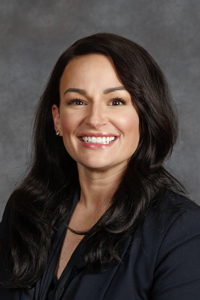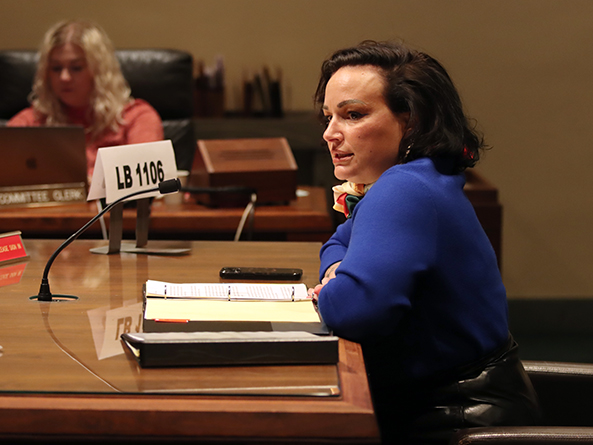Bills would expand Medicaid coverage for lactation support
The Health and Human Services Committee heard testimony Feb. 22 on a pair of bills seeking to increase access to breastfeeding services for Nebraska Medicaid recipients.

LB1106, introduced by Omaha Sen. Jen Day, would increase from five to 10 the number of lactation consultation visits authorized for a mother or child covered by Medicaid. The bill also would increase by 145% the reimbursement rate for lactation consultants.
Day said the start of breastfeeding can come with a number of challenges, including difficulty latching, low milk supply and pain. By addressing these challenges early on, lactation consultants can prevent complications and help mothers achieve successful breastfeeding outcomes, she said.
“[The] early days in a newborn’s life are critically important for [their] health and well-being, as well as the well-being and health of the mother,” Day said.
Tiffany Uher, executive director of MilkWorks, spoke in support of the measure. CDC data shows a 33% decrease in infant deaths if breastfeeding is initiated in the hospital, she said. The health benefits of breastfeeding for mothers and babies has been well documented for decades, she said, yet barriers to successful breastfeeding abound.
“Improved access to instruction on lactation from breastfeeding experts during the postpartum period is critical to overcoming these barriers,” Uher said. “LB1106 would ensure that lactation support is more financially viable for providers and available regardless of the complexity of the mother’s and baby’s needs.”
Erin Feichtinger, policy director for the Women’s Fund of Omaha, also testified in favor of LB1106. The right to choose to breastfeed currently is limited by whether or not a person has access to the necessary support, she said.
Day also introduced a measure that would broaden Medicaid coverage of breast pumps.
Currently, Nebraska provides a breast pump to mothers insured under Medicaid prior to the birth of their child. However, uninsured mothers whose child will qualify for Medicaid coverage under the Children’s Health Insurance Program upon birth cannot apply for a breast pump until after the child is born.
LB1107 would require that breast pumps be provided before 36 weeks gestation to mothers whose children will qualify for Medicaid upon birth. A mother who delivers a child before 36 weeks gestation would receive a breast pump the day of delivery, and pumps would be required to meet certain technical specifications.
Breastfeeding counselor Teresa Peña testified in support of LB1107. She said breast pumps are essential during the first days postpartum because mothers need to remove milk from their breasts frequently to maintain a steady milk supply.
“It is crucial that all mothers in the state of Nebraska have access to sufficient quality pumps and are able to access them prior to the delivery of their babies,” Peña said. “Providing a pump prior to the birth of their baby is not only dignified but it allows families to learn, prepare and feel supported.”
Julia Keown also spoke in support of the bill on behalf of the Nebraska Nurses Association. Using a breast pump to express milk within one hour of birth increases the amount of long-term milk produced and stabilizes milk production sooner than pumping six hours after giving birth, she said.
According to the American Academy of Pediatrics, Keown said, infants fed breast milk have better short- and long-term health outcomes, protection from various infections and better neurodevelopmental and cognitive outcomes.
“This shows us that time is of the essence,” she said. “[LB1107] can lead to higher breast milk feeding success rates and results in better outcomes for infants in Nebraska.”
The provisions of both bills would take effect no later than Jan. 1, 2025.
No one testified in opposition to LB1106 or LB1107 and the committee took no immediate action on either proposal.


